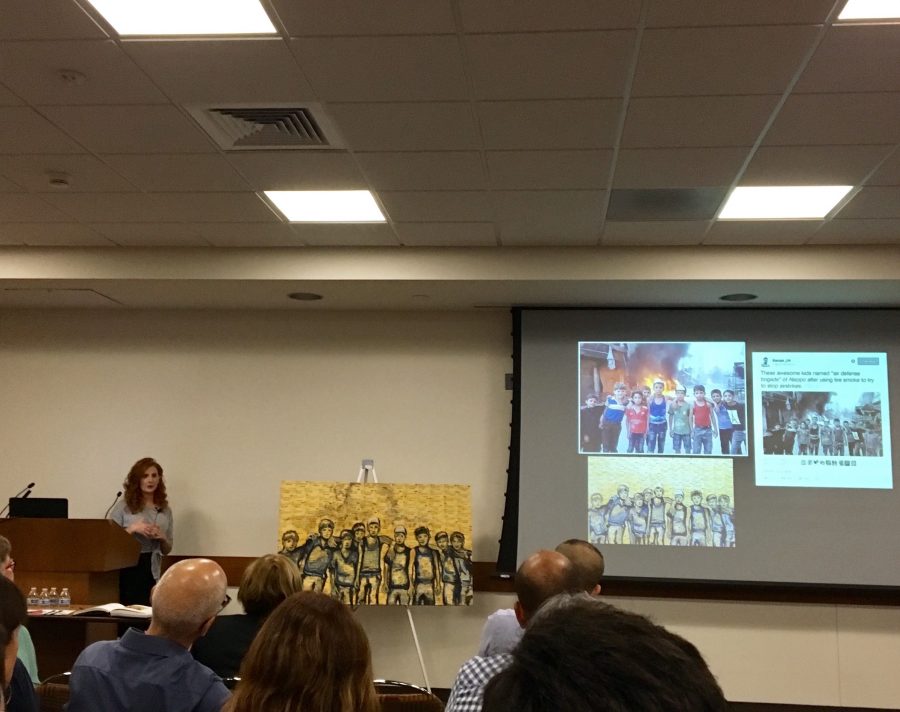
David Seidler has been a television and film writer for many years but had never achieved such a high degree of success until “The King’s Speech” was released this winter. The film explores the relationship between the late King George VI, or “Bertie” (played by Colin Firth) and his speech therapist Lionel Logue (Geoffrey Rush) during his accession into becoming the king of England.
Seidler was born in England and had a stutter when he was young boy, a speech disorder he had in common with the king of England at the time. As an adult, he wanted to explore the story of the king, whom he had admired as a child. However, he wasn’t sure anyone would want to see a movie about a “dead king who stutters.”
It’s apparent from the incredible amount of praise that many agree the movie and Seidler’s script is a success. He was nominated for Best Screenplay at the Golden Globes and has also been nominated for an Academy Award.
On King George VI:
“I was a stutterer. It really is a miserable affliction, but my one great inspiration was King George VI. He’s not perfect, but he gave these magnificent, stirring addresses. Everyone listened to him very critically, syllable by syllable. He was a childhood hero of mine.
We’ve come a long way in regard to handicaps. The president of the United States was not often seen or photographed in his wheelchair because it was a sign of weakness. Stuttering, or stammering, (in England it’s called stammering) was called a speech ‘defect.’ So if you had a speech defect, you were a ‘defected person.’ And you couldn’t have the king of England be referred to as a “defected person” so it was never talked about. And so his speech therapist was never talked about.”
On writing and the Queen Mum:
“They said, ‘You must get written permission from the queen.’ That’s when my American friends realized how British I really was. I wrote to the Queen Mum … and she said something like ‘Dear Mr. Seidler, please not during my lifetime because everything is still too painful.’ So I thought, how long do I have to wait? She’s a nice old lady, but maybe a couple of years? Two, three years at most? 25 years later … just shy of her 102nd birthday, she left us.”
On breaking into Hollywood:
“I arrived in Hollywood very late, in my late 40s, just when everyone with any sense was leaving. I was very naïve … my first gig in town was writing ‘Tucker’ for Francis Ford Coppola … which was in production for about 10 years.
“This of course is the most personal thing I’ve ever done. After all, I’m a stutterer … well, ex-stutterer. People say ex-stutterer, but once a stutterer, always a stutterer. So it’s much more personal than anything else I’ve ever done. I’ve had a very scattered career. I’ve done everything from Kung Fu killers to animated features, TV movies … this was the most fun and the most satisfying.”
On biopics:
“My new best friend Aaron Sorkin (screenplay writer of “The Social Network”) says it best when he was asked about Facebook and how real it is. Aaron said, ‘I’m not writing a documentary, I’m writing a movie.’ I’m torn about that. On one hand, I do agree with Aaron, that you are using facts to tell a story, and on the other hand, you are dealing with someone’s life.”
On casting:
“You get a good sense for a story; you can just smell it, and I had a sense that Lionel was the story. When I first sat down, my original assumption was that no one else in the world could play Lionel. In terms of Bertie, I have to be honest. My original idea was that Paul Bettany, who looks a great deal like Bertie would play the part, but scheduling problems prevented it. (Hugh Grant was considered for the role and Robert Downey Jr. was mentioned). At first I wasn’t thrilled about the actor, mostly because he was known as Mr. Darcy at the time. Then, I saw ‘A Single Man’ (and realized) he is so much more than that.”
On Tom Hooper:
“Tom Hooper is a wonderful director for many reasons. He uses the scene really as a palette and when he uses the camera, his framing is very deliberate. Usually it’s a very dictatorial process, but not with Tom.”
On humor:
“Tom took out some of the humor because he didn’t want people to think ‘Oh, this is just a comedy.’ The humor comes out of the characters, out of the situations. It’s not one-liners; it’s not gag humor. The humor comes out of the juxtaposition and the friction between the two very different characters. One’s a king, one’s a commoner. One’s an Englishman, one’s an Australian. They are truly the odd couple, so you get a lot of odd couple humor. My literary idol from when I was young, and still is, was George Bernard Shaw. From him I learned that the best way to say something serious is through humor.”
On Awards Season and Success:
“It’s hard work! This is maybe why I’ve avoided success so far in my career. I’m very proud of it. If that’s the only thing I ever did in my life is create this movie, then I’d be well satisfied.”






